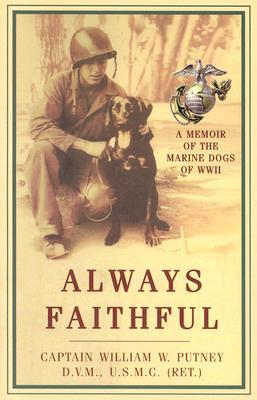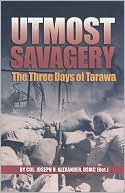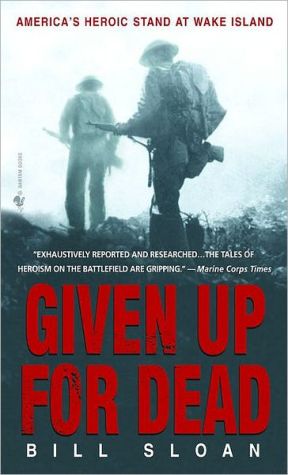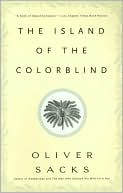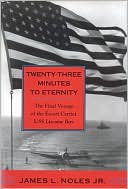The Sex Lives of Cannibals: Adrift in the Equatorial Pacific
At the age of twenty-six, Maarten Troost—who had been pushing the snooze button on the alarm clock of life by racking up useless graduate degrees and muddling through a series of temp jobs—decided to pack up his flip-flops and move to Tarawa, a remote South Pacific island in the Republic of Kiribati. He was restless and lacked direction, and the idea of dropping everything and moving to the ends of the earth was irresistibly romantic. He should have known better.\ The Sex Lives of Cannibals...
Search in google:
Just in case you want to exercise your inner Gauguin, Troost here presents about a hundred reasons why you should stay in the 'burbs. He spent two years on a tropical isle, only to discover that it was a lot like hell, minus the toilets. While contending with putrifying heat, seas so polluted even those of limited divinity could walk on them, diseases never encountered in the relatively calm environs of an ER, and (shudder) no coffee or beer, Troost also found the only music to be had for miles was "La Macarena." To this case study of the absurd, Troost actually adds a bibliography. He does not include an index, which is a pity because readers may actually want to find out how many times Troost had to put up with "Half-Dead Fred" and outbreaks of hepatitis A, B, and C. Annotation ©2004 Book News, Inc., Portland, OR Publishers Weekly At 26, Troost followed his wife to Kiribati, a tiny island nation in the South Pacific. Virtually ignored by the rest of humanity (its erstwhile colonial owners, the Brits, left in 1979), Kiribati is the kind of place where dolphins frolic in lagoons, days end with glorious sunsets and airplanes might have to circle overhead because pigs occupy the island's sole runway. Troost's wife was working for an international nonprofit; the author himself planned to hang out and maybe write a literary masterpiece. But Kiribati wasn't quite paradise. It was polluted, overpopulated and scorchingly sunny (Troost could almost feel his freckles mutating into something "interesting and tumorous"). The villages overflowed with scavengers and recently introduced, nonbiodegradable trash. And the Kiribati people seemed excessively hedonistic. Yet after two years, Troost and his wife felt so comfortable, they were reluctant to return home. Troost is a sharp, funny writer, richly evoking the strange, day-by-day wonder that became his life in the islands. One night, he's doing his best funky chicken with dancing Kiribati; the next morning, he's on the high seas contemplating a toilet extending off the boat's stern (when the ocean was rough, he learns, it was like using a bidet). Troost's chronicle of his sojourn in a forgotten world is a comic masterwork of travel writing and a revealing look at a culture clash. (June 8) Copyright 2004 Reed Business Information.
Chapter 1\ In which the Author expresses some Dissatisfaction with the State of his Life, ponders briefly prior Adventures and Misfortunes, and with the aid of his Beguiling Girlfriend, decides to Quit the Life that is known to him and make forth with all Due Haste for Parts Unknown.\ One day, I moved with my girlfriend Sylvia to an atoll in the Equatorial Pacific. The atoll was called Tarawa, and should a devout believer in a flat earth ever alight upon its meager shore, he (or she) would have to accept that he (or she) had reached the end of the world. Even cartographers relegate Tarawa either to the abyss of the crease or to the far periphery of the map, assigning to the island a kindly dot that still manages to greatly exaggerate its size. At the time, I could think of no better destination than this heat-blasted sliver of coral. Tarawa was the end of the world, and for two years it became the center of mine.\ It is the nature of books such as these -- the travel, adventure, humor, memoir kind of book-to offer some reason, some driving force, an irreproachable motivation, for undertaking the odd journey. One reads, I had long been fascinated by the Red-Arsed Llama, presumed extinct since 1742, and I determined to find one; or I only feel alive when I am nearly dead, and so the challenge of climbing K2, alone, without oxygen, or gloves, and snowboarding down, at night, looked promising; or A long career (two and a half years) spent leveraging brands in the pursuit of optimal network solutions made me rich as Croesus, and yet I felt strangely uneasy, possibly because I now own 372 (hardworking) kids in Sri Lanka, which is why I decided to move to a quaint corner of Europe, where I would learn from the peasants and grow olive wine. And typically, the writer emerges a little wiser, a little kinder, more spiritual, with a greater appreciation for the interconnectivity of all things.\ Let me say at the top here that I didn't have a particularly good reason for moving to Tarawa. There was nothing Quaker-ish, Thoreau-ish, Gauguin-ish (as you wish) about my taking a little leave from Western civilization, which I thought was fine mostly, particularly as manifested in certain parts of Italy. True, I had worries. News You Can Use, the peculiar link between consumption and identity, professional athletes who strike, Cokie Roberts, the Lazarus-like resuscitations of Geraldo Rivera's career, and the demise of the Washington Redskins as a team to be reckoned with all gave me pause and even some anxiety regarding the general course of Western society. However, these issues seemed insufficient to justify a renunciation of continental comfort. I was simply restless, quite likely because of a dissatisfaction with the recent trajectory of my life, and if there is a better, more compelling reason for dropping everything and moving to the end of the world, I know not what it is.\ It was the summer of 1996 and I had just finished graduate school in Washington, D.C., which is where I'd met my girlfriend, Sylvia. Both of us had studied international relations. I focused on Eastern Europe (think triumph of good over evil), and Sylvia concentrated on Western Europe (think agricultural subsidies), for which she has been teased mercilessly. While Sylvia passed her semesters with determined ambition, I drifted through, racking up modest grades, until finally there was not an exam left to be taken, not a paper to be turned in, and I was discharged. Job offers were not forthcoming, most likely because I didn't apply to any jobs. Nor was I particularly adept at what is called networking, which is highly encouraged among job seekers, but perhaps not entirely useful for reticent souls utterly flummoxed by what career to pursue.\ Instead of getting a job I went to Cuba, which as expected was interesting, and this delayed for ten more days my entry into the ranks of the employed. I traveled there impulsively, deciding one day that Havana was where I really wanted to be, and within a week I found myself on the Malecon, the seaside avenue, saying yes to cigars and no really, I didn't want to meet their sister. In Havana, I danced in the salsa manner. I rode in a Studebaker. I had long rambling conversations with handsome, middle-aged women about the troubles in Cuba and I learned from them where on the black market in Habana Vieja I could find a chicken. I smoked a marijuana cigarette with Havana's bad element. I learned that Che is ubiquitous in Cuba, and that for most Cubans he is something more than a fashion statement. I learned much else besides, and I didn't even speak Spanish, dredging up instead a hybrid patois composed of schoolboy Latin tossed with French spoken in the accent of Ricardo Montalban.\ One may wonder how an unemployed exgraduate student with no means whatsoever was able to afford a trip to Cuba. The truth of the matter was that I couldn't afford it. However, in an act of colossal misjudgment, American Express had agreed to give me a credit card. American Express, of course, was not accepted in Cuba itself. This is because Cubans are Communists and we are not allowed to trade with Communists, unless they are Chinese Communists. American Express, however, was very helpful in obtaining the full-fare economy-class WashingtonNewarkMexico CityHavana round-trip ticket on AeroMexico, as well as one night's accommodation at an airport hotel in Mexico City, after my last twenty dollars were used to pay an unexpected departure tax in Havana. ("Mais ca dise dans la guido por visitor, no departure tax.") Since I was resoundingly broke at the time, what cash I did have came from defying the tenets of my lease and subletting my one-room apartment to an intern contributing his time to restoring values in America, which apparently lost them, probably in the sixties. He lived in my apartment for one month (cleanliness, apparently, was not a value worth returning to). Since I spent only ten days in Cuba, this left three weeks of unresolved residence needs that needed addressing, which led to an interesting conversation.\ "Hi, Mom."\ "Uh-oh."\ "I'm going to Cuba tomorrow."\ Pause.\ "I'll be back in ten days, provided that Castro doesn't arrest me and the INS lets me back in. Ha-ha."\ Pause.\ A whispered aside. ". . . he's going to Cuba tomorrow." The family dog, a beagle, howled.\ Bob, my stepfather, got on the line. "Maaaaarten," he said, which he does whenever I'm doing something unreasonable, something that will upset my mother. "You know your mother doesn't like Communists. But listen, since you're going, let me call my friends at the Agency. You could do some freelance work for them."\ Offline, my mother's voice, plaintive. "Bob!"\ It was Bob's method of diplomatic, benevolent stepparenting, suggesting something more outrageous than what I had devised, so that in comparison, my own reckless irresponsibility seemed suddenly like a moderate course of action. I was grateful for this. I promised my mother that I would not act on Bob's suggestion. It would be foolhardy, I said, to spy for the CIA. I assured her that I would refrain from engaging in any activities that could lead to my spending the rest of my days withering away in a Cuban gulag. In return, I received three weeks of accommodation in suburban Washington, meals included, which worked out well, I thought.\ Alas, I soon discovered that a daily wake-up call from a collection agency is a remarkably unpleasant way to begin one's day. These are not warm, friendly voices delicately reminding you that your account is just a trifle overdue, but intimidating snarls threatening personal ruin, and while they didn't precisely say that they were sending Vinnie over and that I might soon have some mobility issues, it was implied. Also, these calls didn't impress Sylvia much. And so I made another phone call.\ "Hi, Dad."\ "Uh-oh."\ "Well, it's like this -- "\ "No."\ "It appears that this particular situation might have certain ramifications regarding -- "\ "I believe at this point you owe me $180,000."\ A gross exaggeration, but effective. It was time, at last, to do something about my income stream, such as, for instance, obtaining one. Like many highly educated people, I didn't have much in the way of actual skills, with the notable exception of forklift operator, at which I did not excel. My lack of excellence in forklift operations, however, did not prevent the manager of the produce market-plant nursery emporium where I labored after high school from sending me forth onto Rockville Pike, one of the main arteries linking Washington, D.C., with the Maryland suburbs, where technically, forklifts should not be -- as I soon learned -- because when forklifts take a corner a wee bit too fast they tend to tip, which can lead to hundreds of watermelons rolling across the intersection with Montrose Road, followed by said watermelons being chased by a very embarrassed forklift operator wondering whether this, finally, would be the last straw before he was fired. Other skills included housepainting, which I could no longer continue on account of an accident that had made climbing a ladder an experience too terrifying to contemplate; and waiting tables, which I had done at numerous establishments along the Eastern Seaboard, for numerous years, and I just felt that I could no longer serve the numerous assholes that frequent restaurants in a courteous, efficient, nonhomicidal manner.\ While it is true that my grasp of the situation in Macedonia and my familiarity with the Czech Republic's privatization program could, potentially, have led to a professional job, perhaps even a good professional job, I chose not to pursue employment in the field for which I had spent many years acquiring knowledge because . . . because, well, I didn't really have a good reason. It just didn't seem like the right thing to do, possibly because to obtain a professional job requires much letter writing and phone calling and boot licking, which comes suspiciously close to being a real job in itself and this I was in no mood for. Instead, beset by fiscal realities, I turned to Jenny and Debbie, kind yet firm managers of a temporary employment agency. They interviewed me, quickly discerned that I was not quite bereft of brains ("Put the following states in alphabetical order: Utah, Arkansas, Idaho, and Nebraska"), that my knowledge of software programs was scant ("But it says on your resume that you are proficient in Word, WordPerfect and Excel"), and that despite three typing tests I could never exceed twenty-nine words a minute, which was most unfortunate because the temp agency determined wages based on typing speed. And so after six years of exceedingly expensive, private school tertiary education combined with the amassment of some interesting and potentially job-relevant experiences elsewhere in the world, I became a minimum-wage temp, an experience that need not be recounted with much detail, though I will note that to be a temp is to have all the illusions and conceits of youth shattered, which was useful and necessary though disagreeable.\ My temporary job assignments varied, taking me from law firm to trade association and around again, and always I would be led to the ominous file room and told with the patient civility reserved for the learning impaired that I was to make some order of the files. In the few assignments that lasted longer than a week I was offered the opportunity to enhance my skills and I would be taught how to answer the phone while others were on their lunch break, and even how to order office supplies, which I should note is usually very complicated indeed. Occasionally, I lamented my poor typing skills, but I refused Jenny and Debbie's well-meaning offers to take the typing tutorial offered by the agency, fearing that such a move would lead me inexorably toward a career that depended on my typing speed. Instead, I found myself quietly stagnating, slowly approaching the pathos of self-pity -- pathos because I was twenty-six, in the full blossom of youth -- until one morning I meandered away from the day's job, entered a café in Georgetown, ordered a large coffee, freshly squeezed orange juice, a poppy seed bagel, toasted, with lox and cream cheese, and read a newspaper with the mirth of one who has time to linger over the Home and Garden section. Jenny and Debbie were not pleased. "Not showing up for an assignment makes us look bad," said Debbie. "I'm afraid we're going to have to let you go."\ It is an unfortunate reality for innate idlers that our modern world requires one to hold a job to maintain a sustainable existence. Idling, I find, is immensely underrated, even vilified by some who see inactivity as the gateway for the Evil One. Personally, I regard idling as a virtue, but civilized society holds otherwise and the fact remained that I still had to get a job. And so I soon found myself involved in the exciting world of publishing. I was an associate editor for a small publishing firm in Washington, where I worked on a reference book that detailed the work of lobbyists. The first half of the book, which was essentially a Yellow Pages for influence peddlers, was comprised of listings of companies and countries and who they retained to purchase favors from the guardians of democracy in the heart of the free world. The second half of the book listed all lobbying firms and lobbyists and their clients, as well as the "government relations" staff of corporations that saw the need to maintain offices in Washington. The job consisted of sending out questionnaires, following up with phone calls, confirming lobbying data at the Justice Department, and plugging in the results into a computer database that crashed twice daily. I amused myself by matching the names of the Washington representatives of the Bosnian Serbs, the Mobutu regime, various Somali warlords, and Nike with the guest list of state dinners at the White House. Remarkably, however, there were some who did not take kindly to having their lobbying activities made public, which led to some coarse language directed my way over the telephone, and I would like to say here that I wish the "government relations" staff of (Deleted by Legal Department) nothing but ill will, and that I have it on good authority that the ingredients of a (Deleted by Legal Department) include canine fecal matter.\ While this job included health insurance as a little perk to compensate for its serf-like wages, there was no disguising the fact that I was still treading water in the river of life. I had some notion of wanting to write, though little inclination to actually write, which sometimes led me to believe that I should develop other notions. An obscure literary journal had just published a five-thousand-word essay I had written, and while I was pleased to have something published, the $50 and two free issues in compensation for three months of evening work seemed, somehow, inadequate. I kept sending essays, trifles, queries to national magazines, and while often the editors would respond with a kind, encouraging note, even a phone call, they still, sadly, continued to publish the petty ruminations of windbags long past their prime instead of fresh new voices with interesting things to say. (Not that I'm bitter.)\ It was often suggested to me by concerned family members that I should get my foot in the door with a midsized newspaper. I rejected this out of hand. I was familiar enough with journalism to know that were I to cover a news-type event I would rapidly lose all my journalistic-like composure, discard all my faculties of reason, and descend into a stifling murk of uncertainty and fear. I knew this because when I lived in Prague I had been an actual journalist. An English-language weekly newspaper had generously agreed to assign me to real stories based on the masterpiece that was my analysis of the Saudi oil industry, a twenty-page, richly textured, subtly nuanced, carefully crafted display of plagiarism, which earned me a B+ during my junior year of college. These, obviously, were the glory years of the whole westerners-in-Prague era, shortly after the demise of that little experiment in social engineering known as communism, when hundreds, perhaps thousands, of Americans, Canadians, Australians, and other purveyors of Western ways descended upon the most beautiful city in the world and pretty much did anything they wanted to do. It was great.\ My mother is Czech and as a consequence I like to think that I was not merely a seeker of the transcendently hip when I lived in Prague. I was born in the Netherlands and as a child I often traveled to Czechoslovakia to visit my grandfather, who lived in an apartment in Prague overlooking the Vltava River. The faint whiff of burning coal is enough to bring back the indolent river swans, the salty bread and sweet yogurt, the smoke-drenched rooms, my grandfather's beer glass, and the long wanderings through soot-stained passageways in a city that for a time spoke to me only of the deeds of kings. When I was seven, just after my parents divorced, my mother had my younger sister and me baptized in a small church in South Bohemia. Seven, of course, is the age when the brain is at its most fecund, when every image and experience offers portent, and so when Prague's many statues of beheaded saints, detongued martyrs, and gargoyles were all helpfully brought to my attention as being relevant in some way to my life and death, I pretty much stopped sleeping for a year, fearing the nightly intrusion of alarming images, particularly of a slender bearded man being put to death in a highly creative and terrifying fashion just so I could go to heaven one day. To further the potency of my imagination, Prague in the 1970s was experiencing what was quaintly called Normalization, which is Soviet-speak for the dread that occurs when the babicka next door is an informer, which leads to a somber and fearful state of being that is far more efficient in quelling deviation from the right and true path than the intimidation offered by Soviet soldiers.\ That world, of course, was happily discarded, and with Vaclav Havel installed as a kind of philosopher-king in the great, looming castle above Prague, I moved to the city shortly after college, fortunately no longer palpitating at the sight of saintly relics, but aware that this city of spires and pubs had a way of getting inside you. There was something ephemeral about Prague in the early 1990s, and it is the only city I have known to truly have a spirit. I began writing for The Prague Post, or rather they used my name above articles that bore no semblance to the prose I submitted for their consideration. "A story is like a car trip," tutored my editor. "You, the writer, are the car that takes readers from point A to B to C without leaving the road." As careful readers may have already surmised, I favor the ditches of digression.\ During my foray into journalism, I never really felt I knew enough about a particular newsworthy event to provide written coverage of the newsworthy event. The written word presented in a journalistic fashion is regarded by most as the indisputable truth and this just left me dumbfounded with a fear of being wrong. I am a big believer in the Law of Unintended Consequences and I imagined that my failure to capture every nuance and subtlety of a newsworthy event would lead to the collapse of governments, economic crises, and lots of hardship for the people of Eastern and Central Europe. Never mind that my stories usually appeared on page C8, and that they were written in a language few people in the region understood, and that my readership probably never exceeded four, and that those four people were, presumably, the four people I interviewed, via a translator, who would suggest -- not unkindly -- the questions I should be asking. Fortunately, I was both keenly interested in events in the region -- march of history and all that -- as well as highly opinionated, and so I began writing for the newspaper's opinion page, providing comment on the European Union's policies toward their Eastern brethren, the historical roots of the severing of Czechoslovakia, the West's dithering over Bosnia, Havel's conception of democracy, and other topics I was not remotely qualified to comment upon. This I found to my liking. It is a remarkably easy thing to do, pointing out the faults of others and suggesting remedies or courses of action in an argumentative and pedantic sort of way, and I am still amazed that there are many people in the American media who are paid very big money to do this.\ Churning out 750 words on what American policy toward Slovakia should be rarely takes more than an afternoon, and so I spent a lot of time falling in love and traveling and living the life I wanted to live. I saw things that both pleased and horrified me, and in comparison America seemed a sedate and frivolous place. I traveled wherever my meager funds allowed and saw history unfold. On a trip to Poland I had the train connection from hell -- arrive at Frankfurt an der Oder at 1:30 a.m., depart for Warsaw at 5:45 a.m. -- and while curled asleep on the train platform I was suddenly awakened by the Russian Army. Thousands of Russian soldiers passed through the station on their way from Eastern Germany, which was once again one with Western Germany, on their way back to Russia, which I thought was just the niftiest piece of history I had ever seen. A few months later, I too boarded a train for Russia, where I had a very exciting encounter with a bear on a bridge in St. Petersburg, and where I discovered that everything one has read about vodka consumption in that part of the world is true, and now that I think about it, the bear on the bridge was probably the only sober creature I encountered during my three weeks in Russia. I took a ferry to Dubrovnik, on the stunningly beautiful Dalmatian coast, where my friends and I were accosted by a Croatian soldier who charged out of a bar upon our passing, exclaimed "Tourists!" and when we nodded, said "You are the first since the war," and then hustled us into the bar, where we spent the hours after curfew descending into a sublime melancholy on a verandah overlooking the shell-scarred old town while listening to the staccato crackling of gunfire. In Turkey, I slipped while rock climbing above a waterfall and fractured three vertebrae, which really hurt, though I did find great happiness when, lying crumpled in a gorge, I told my toes to move and they did. I also went to Bosnia-Herzegovina. I obtained press credentials through The Prague Post and soon found myself in Mostar, where I was deeply, deeply in over my head and utterly dependent upon the kindness of English mercenaries, and I learned there that the distance between civilization and savagery is exceedingly small and this has scared me ever since.\ The point of this little excursion into events and happenings that have nothing whatsoever to do with the South Pacific is simply that I had grown accustomed to life being interesting and adventure ridden and, rather childishly, I refused to believe that this must necessarily come to an end and that the rest of my life should be a sort of penance for all the reckless, irresponsible, and immensely fun things I'd done before. Being a data-entry clerk, even though I was very, very good, just didn't compare to being an incompetent war correspondent. In Washington, I never quite knew what my ambitions were. I sensed that I should move on from waiting tables and housepainting and temping and clerking, but the idea of working in an office and doing office-type work in a committed fashion seemed like a quiet little death to me. Fortunately, with no prodding from me, Sylvia was also inclined to make a few changes. She had begun working for a nongovernmental organization that focused on international development. Suffice it to say that the Washington end of such work can be a mite dispiriting and Sylvia soon began to yearn for the field, which is international development-speak for Third World hellhole. And so we both began applying for jobs in the most miserable places on Earth.\ I should perhaps pause here for a moment and mention something of my courtship with Sylvia. It was a night of possiblity. The air was redolent of wheat, hops, and barley. A kindly gentleman, his dreadlocks flowing, made polite introductions. I suavely filled her plastic cup with Budweiser. Her eyes sparkled. Soon, a few dates, some soulful conversation, several well-timed romantic gestures, a stirring hike in the Appalachian Mountains, up where eagles soared, and we moved in together, sharing a charming apartment with an enormous deck shaded by an ancient elm, on a narrow street illuminated by gaslights in Washington's hip, predominately gay neighborhood of Dupont Circle. We were smitten. We pledged to follow each other to the ends of the Earth. ("Pphhhttt," said Sylvia, upon reading, over my shoulder. "What drivel.")\ Sylvia got the first potentially interesting, exciting, possibly dangerous job nibble. Sarajevo beckoned. She was being considered for a position as a program officer with a refugee agency. She had a phone interview and I watched, standing in our living room, silently cheering yes, good answer!, but, in a loss for Bosnia, she was passed over for lack of experience. Then I got the call. Tanzania this time. I was being considered for a position as a press liaison for a refugee agency that operated a camp for 500,000 Rwandan refugees. I am pretty good at compartmentalizing and I figured that I could balance the wretchedness of the camps, and the dismal fact that they contained the Hutu perpetrators of genocide, with safari-type excursions and remain sane. But the guy who had the job decided that one year of liaising between the Rwandan refugees and the world press was not quite enough and so he decided to stay for another year, which upon reflection was probably just as well. And then nothing, just a few letters thanking us for our interest in the program coordinator position in Sudan, or Angola, or Cambodia, but unfortunately, et cetera, et cetera. A change of strategy was called for. If no one was going to send us to an exotic locale then we would just go ourselves and make the best of it.\ We decided to move to Hanoi. We would do this by moving out of our apartment and into the basement of my mother's house, where we would live for three months and save enough money to get going in Vietnam. My mother, inexplicably, was not opposed to this and we were about to give notice to our landlord when Sylvia called me at work and asked if I would be inclined to move to a small atoll in the Equatorial Pacific and whether I would be able to do so in about three weeks' time. She had been offered a position as country director for the Foundation for the Peoples of the South PacificKiribati Office. Five seconds later I quit my job. Then I called Sylvia back.\ "Kiri-what?"
\ From Barnes & NobleBarnes & Noble Discover Great New Writers\ Upon earning his master's degree, Maarten Troost found himself among the highly educated sort routinely described by temp agencies as having "no skills." So, when his slightly more ambitious girlfriend, Sylvia, was offered a government job on the distant Pacific atoll of Tarawa, the "buoyantly optimistic" duo jumped at the opportunity to play modern-day Robinson Crusoe. Packed with mostly the wrong belongings, they stranded themselves among the I-Kiribatis, on what they hoped would be a romantic tropical-island paradise. It didn't take long for reality to set in. \ Tarawa, "a notch above the equator and five thousand miles from anywhere," is actually a sandbar from hell, populated by clueless minions and possessing little infrastructure. While Troost dreams of writing an epic novel, he instead finds himself scurrying for potable water, watching in horror as his neighbors employ the reef as a toilet, and wearying of the bone-searing heat and myriad deprivations of life on this tiny, remote island.\ A brilliant comic writer, Troost paints crowded, polluted Tarawa in such compassionate detail that it's not a complete surprise when, after a couple of years back in the States working in well-paid, more comfortable environs, he and Sylvia decide to again brave "paradise." Fans of the recent Discover pick Holy Cow: This is the next book for you. (Fall 2004 Selection)\ \ \ \ \ \ Publishers WeeklyAt 26, Troost followed his wife to Kiribati, a tiny island nation in the South Pacific. Virtually ignored by the rest of humanity (its erstwhile colonial owners, the Brits, left in 1979), Kiribati is the kind of place where dolphins frolic in lagoons, days end with glorious sunsets and airplanes might have to circle overhead because pigs occupy the island's sole runway. Troost's wife was working for an international nonprofit; the author himself planned to hang out and maybe write a literary masterpiece. But Kiribati wasn't quite paradise. It was polluted, overpopulated and scorchingly sunny (Troost could almost feel his freckles mutating into something "interesting and tumorous"). The villages overflowed with scavengers and recently introduced, nonbiodegradable trash. And the Kiribati people seemed excessively hedonistic. Yet after two years, Troost and his wife felt so comfortable, they were reluctant to return home. Troost is a sharp, funny writer, richly evoking the strange, day-by-day wonder that became his life in the islands. One night, he's doing his best funky chicken with dancing Kiribati; the next morning, he's on the high seas contemplating a toilet extending off the boat's stern (when the ocean was rough, he learns, it was like using a bidet). Troost's chronicle of his sojourn in a forgotten world is a comic masterwork of travel writing and a revealing look at a culture clash. (June 8) Copyright 2004 Reed Business Information.\ \ \ Kirkus ReviewsNewcomer Troost nests on a tiny island in the vast Pacific, finding it strange and unappealing, though not utterly without its pleasures. The beer, for instance: one of the few ingestibles the island of Tarawa possesses that is neither odious nor toxic. A part of the Republic of Kiribati (known to the British colonial community as the Gilberts), Tarawa is a sliver of coral that pretty much defines the idea of remoteness. This spot at the end of the world was the center of Troost's world for two years after he followed his girlfriend to her posting on the island. No, he wasn't emulating Thoreau or Gauguin, just taking the kind of whimsical step a recent, reticent graduate student would consider when "flummoxed by what career to pursue." Well, Troost has found his calling in broadly humorous travel writing. He's a natural: he likes tumbling into the ditches of digression; he can evoke a place (Prague, in a digression from the Tarawa saga) with an ardor that will have you wanting to jump on the first plane; he's read his history (there is a sharp background chapter on the rancorous influence of missionaries, traders, and chiefly wars fueled by drink); he's no chump when it comes to the ironies and iniquities of politics; he can write an entire engaging chapter on the day the beer ran out in Tarawa; and he is capable of saying things like, "I was under the impression that only occurred in places like tribal Pakistan," or, "there have been occasions when toilet bowls have spoken to me. Don't do shots, they said." He can also laugh at himself, almost as often as the islanders do. Okay, so Tarawa is less paradise than purgatory, but hang in there-Troost will lead you to paradise, too. Lives upto the billing as "a travel, adventure, humor, memoir kind of book"-and a really good one, at that. Agent: B.J. Robbins\ \

